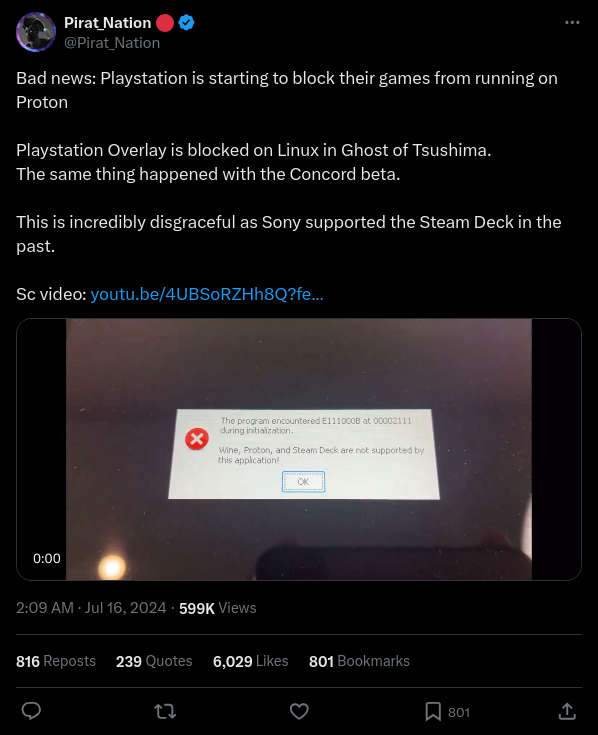this post was submitted on 17 Jul 2024
546 points (97.2% liked)
Games
17457 readers
851 users here now
Video game news oriented community. No NanoUFO is not a bot :)
Posts.
- News oriented content (general reviews, previews or retrospectives allowed).
- Broad discussion posts (preferably not only about a specific game).
- No humor/memes etc..
- No affiliate links
- No advertising.
- No clickbait, editorialized, sensational titles. State the game in question in the title. No all caps.
- No self promotion.
- No duplicate posts, newer post will be deleted unless there is more discussion in one of the posts.
- No politics.
Comments.
- No personal attacks.
- Obey instance rules.
- No low effort comments(one or two words, emoji etc..)
- Please use spoiler tags for spoilers.
My goal is just to have a community where people can go and see what new game news is out for the day and comment on it.
Other communities:
founded 2 years ago
MODERATORS
you are viewing a single comment's thread
view the rest of the comments
view the rest of the comments

No, on Linux, like the Steam Deck that OP mentioned. Windows was never mentioned here until you brought it up, and even there you're wrong, kernel level anti-cheat doesn't have the same level of access than any random game, even on Windows. Even Windows, with it's janky security measures, has some level of containment around users, even on Windows regular users can't edit system files or other users files, even on Windows a virus without root has a lot less access than a virus you give root access, and by having an interface that allows games to gain root access you've given viruses a new path to privesc. I recommend you read some more on cyber security and programming before saying something like "userspace == kernel level", because that's the same as someone attempting to discuss astrophysics with people who have masters on it while claiming the earth is flat. There's a whole field of study into how security can be compromised to go from userspace to kernel level, handwaving it away because you think your user's documents are the important part of a system is reductive at best and malicious at worst.
Do you know what a "strawman" argument is?
Yes, an example of which is someone pointing at a game not working on Linux and someone else ignoring the Linux part and attacking the argument as if it were on Windows. And doing a poor attempt at that, because even on Windows kernel level anti-cheat is invasive and leaves to privesc possibilities.